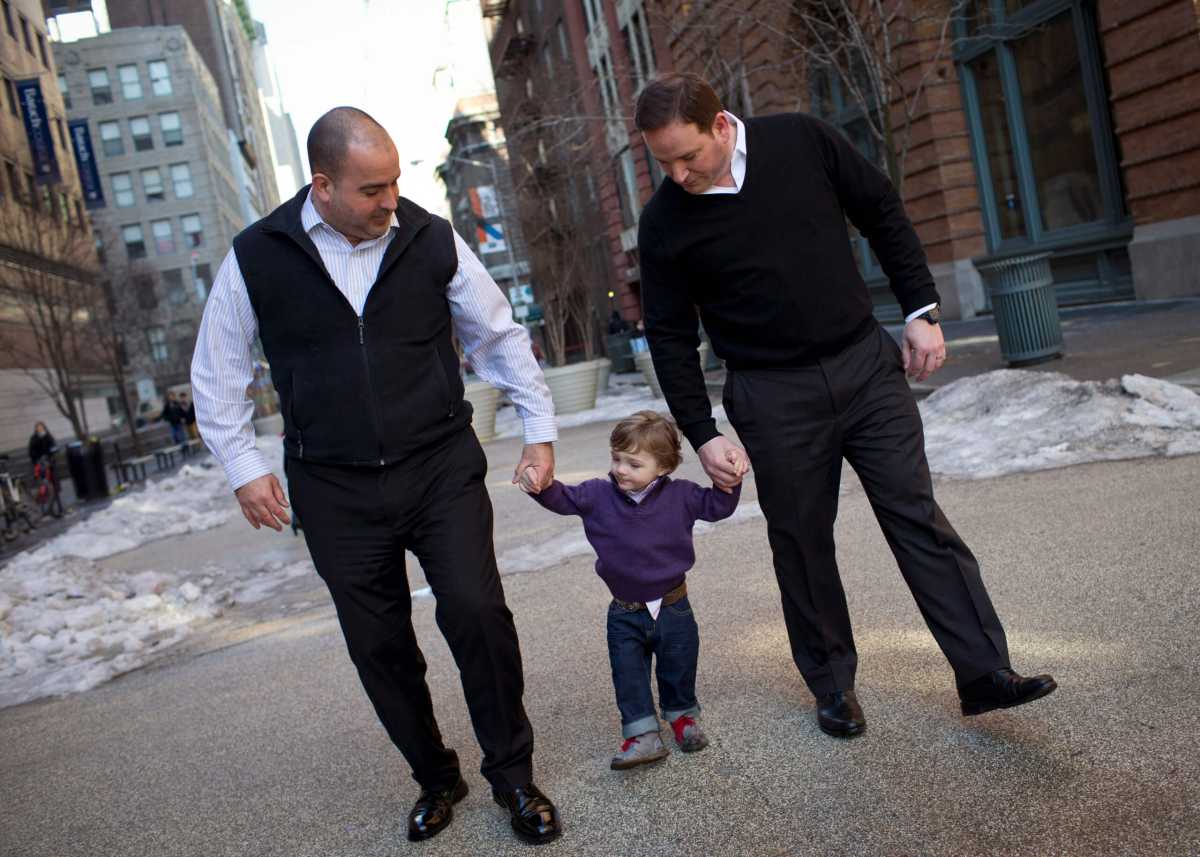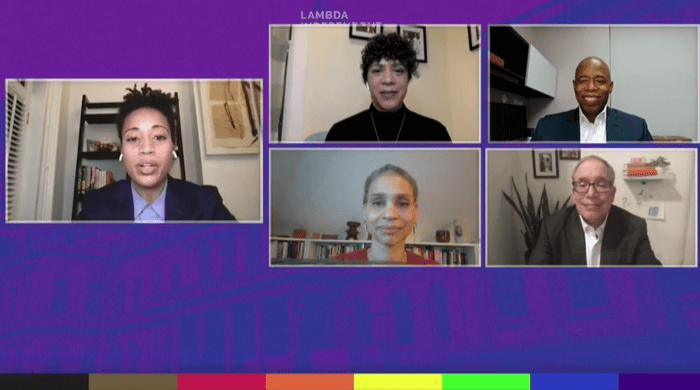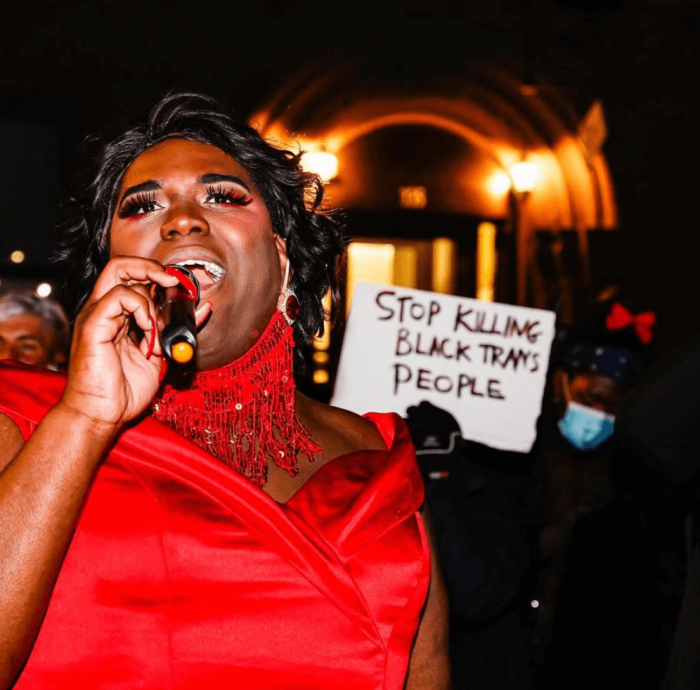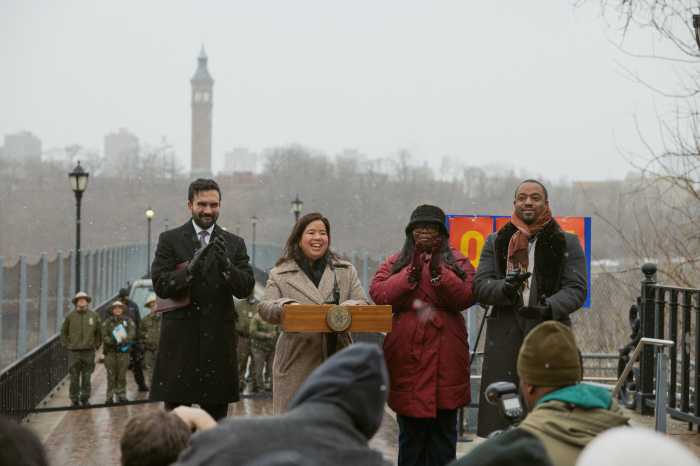Bethany Christian Services, a large Evangelical national social services agency that is a major provider of foster care and adoption services, announced a change of its nationwide policy in an email to staff members on March 1. Bethany will no longer automatically refer same-sex couples seeking their services to other agencies. Instead, Bethany will provide the services directly to married same-sex couples.
The about-face comes at a time when the Supreme Court is considering the question of whether Catholic Social Services (CSS) can get a religious exemption from a Philadelphia policy stipulating that foster care agencies with city contracts must adhere to LGBTQ nondiscrimination requirements.
“We will now offer services with the love and compassion of Jesus to the many types of families who exist in our world today,” Bethany’s president, Chris Palusky, said in the email to the agency’s approximately 1,500 staff members, according to the New York Times. “We’re taking an ‘all hands on deck’ approach where all are welcome.”
Bethany’s formal position had been to provide such services only to traditionally married heterosexual couples, although some of its local operations had quietly begun to provide the services to married same-sex couples.
It would not be the first time Bethany Christian Services reversed course on its own policy. Two years ago, they started placing kids in the homes of same-sex parents in response to legal action — but that policy shift was confined to the state of Michigan. The latest one applies to all Bethany Christian Services locations in the nation.
In 2007, Bethany’s board adopted the following policy statement: “God’s design for the family is a covenant and lifelong marriage of one man and one woman.” But on January 21 of this year, the Board decided to drop its prior policy and start openly providing the services agency-wide.
The agency’s policy turnabout stemmed from its experience in Philadelphia. In March 2018, a reporter from the Philadelphia Inquirer who had been researching the subject called the City’s Department of Human Services (DHS) to tell them that two agencies, Bethany and Catholic Social Services, had a policy of denying foster care services to same-sex couples. About 30 agencies provided such services in Philadelphia, but these two agencies were the only ones who refused to do so on religious grounds.
When the Inquirer published its story, the City Council, which had banned sexual orientation discrimination years before, erupted in anger, passing a resolution urging DHS to take action.
DHS contacted both agencies and informed them that if they refused to provide such services, their contracts with the city would not be renewed and the city would stop referring children in need of foster placements to the agencies. The city paid the agencies to carry out these services, and it was a significant source of revenue to both agencies.
Bethany decided to comply with the city’s request and remain in the program, and informally made similar decisions elsewhere when called on the question by government agencies. Catholic Social Services (CSS), by contrast, decided to hang tough. In response to the demands from DHS, CSS filed a federal lawsuit claiming that the City’s action violated their First Amendment religious freedom rights.
CSS lost in the district court and the Third Circuit Court of Appeals. Their appeal to the US Supreme Court was argued in November and an opinion will be issued later this year.
As part of their appeal, CSS argued that the court should overrule its longstanding precedent, Employment Division of the State of Oregon v. Smith, which held that religious objectors are not privileged under the First Amendment to refuse to comply with religiously-neutral state laws of general application. Since at least four of the court’s conservative members (Justices Clarence Thomas, Samuel Alito, Neil Gorsuch, and Brett Kavanaugh) have called for “revisiting” that decision in recent years, it is likely that CSS’s petition for review was granted with that result in mind if the four can win over at least one more member of the court to their point of view. Justice Amy Coney Barrett and Chief Justice Roberts are their most likely recruits.
Justice Antonin Scalia wrote the court’s opinion in the Smith case, which reversed decades of Supreme Court precedents. Prior to that decision, the court interpreted the Free Exercise Clause of the First Amendment as granting religious objectors the right to refuse to comply with state laws unless the state could prove it had a compelling interest that could only be achieved by enforcing the law against the religious objector.
After the Smith decision, bipartisan majorities in both houses of Congress passed the Religious Freedom Restoration Act (RFRA), purporting to overrule the Supreme Court and restore the prior interpretation of the Free Exercise Clause, but the court then ruled that Congress did not have the power to overrule the court’s interpretation of the Constitution. Congress then passed a narrower version of RFRA, under which compliance with federal statutes and regulations that impose a burden on free exercise of religion will be excused unless the federal government shows that the challenged law was passed to achieve a compelling government interest and provides the least restrictive alternative for achieving that interest. Many states passed similar laws, including Pennsylvania.
Interestingly, however, the lower federal courts in the CSS case rejected an argument by CSS that Pennsylvania’s Religious Freedom Protection Act would excuse CSS from complying with the city’s non-discrimination requirements. The Third Circuit specifically found, after reviewing Pennsylvania state court interpretations of that statute, that “the city’s actions are the least restrictive means of furthering a compelling government interest,” because “it is black-letter law that ‘eradicating discrimination’ is a compelling interest.”
Unlike CSS, Bethany took the less combative and doctrinaire approach, preserving its contract with the city to continue vetting prospective foster parents, making matches for children referred by the city, and providing supportive services for the foster families. CSS continues to operate other programs, some with city funding, but it is out of the city’s foster care program, pending a final decision by the Supreme Court in its case.
Bethany’s decision to change its policy nationwide is a big deal and a major cultural moment because, as the Times reports, it is the largest Protestant foster care and adoption agency in the country, with operations in many states and localities that ban sexual orientation discrimination. Its decision gives “cover” to the child services professionals working with other religious agencies in this field to provide such services as well.
To sign up for the Gay City News email newsletter, visit gaycitynews.com/newsletter.






































